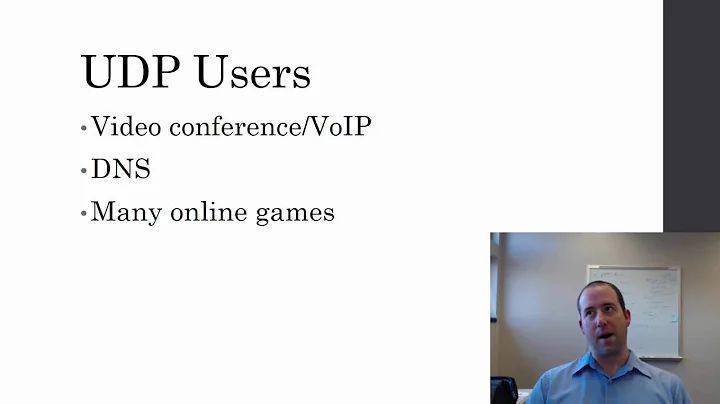Using degraded feature set TCP instead of UDP for DNS server
I had advised doing the following:
- Set
DNSSEC=noin/etc/systemd/resolved.conf - Use another DNS server than that of the ISP (such as Google Public DNS)
- Disable IPv6 in the local network (is perhaps not helpful).
The poster has reported doing this:
I have set
DNSSEC=no(commenting it out) through the command:sudo nano /etc/systemd/resolved.confAfter that the cmd:
sudo systemctl restart systemd-resolved.servicewith a reboot.
For changing the DNS servers, the poster has followed the article
How to Set DNS Nameservers on Ubuntu 18.04.
For the moment, the poster's system seems stable.
Related videos on Youtube
Comments
-
Siderius almost 2 years
I periodically experience a disconnection with my laptop. The connection period lasts about 3-6 minutes. I know for certain that the WiFi works fine.
Using the command
sudo journalctl --since="-2 minutes"I find that a recurring line is:(...) Using degraded feature set UDP instead of TCP for DNS server 10.64.10.16.What should I do ? I cannot work since the connection conditions are definitely unstable. I have recently noticed that it is a quite common problem.
I have ubuntu whose version is 21.04, and my laptop is an Acer Aspire 3 A315-56 with a WiFi connection.
-
telcoM almost 3 yearsYour DNS resolver (maybe
systemd-resolved?) might be normally using DNSSEC/EDNS0, and using a TCP connection to DNS server because of this. When you have a connection problem, it notices TCP connection is failing and reverts to UDP and basic DNS protocol. But if you still experience a disconnection, that probably means the reversion to UDP is not helping, perhaps because the actual connection to the destination website (or whatever) still uses TCP and still fails. What is your basis for the conclusion that WiFi works fine? (I'm asking to exactly identify the known-good element(s).) -
 harrymc almost 3 yearsThings to try: (1) Use another DNS server than that of your ISP (example), (2) Disable IPv6 in your local network, (3) Set
harrymc almost 3 yearsThings to try: (1) Use another DNS server than that of your ISP (example), (2) Disable IPv6 in your local network, (3) SetDNSSEC=noin/etc/systemd/resolved.conf. -
Siderius almost 3 years@telcoM I can observe a download plot from another machine. This download is continuous with a constant download speed of 80 kb/s (which is the expected speed). In this way I can observe hypothetical WiFi crashes if any.
-
Siderius almost 3 yearsI have noticed that
resolvconfwas missing. After that, as @harrymc suggested I have setDNSSEC=off(commenting it out) through the command: sudo nano /etc/systemd/resolved.conf After that the cmd sudo systemctl restart systemd-resolved.service -
 harrymc almost 3 yearsDid this change anything? (Or you don't know yet)
harrymc almost 3 yearsDid this change anything? (Or you don't know yet) -
Siderius almost 3 years@harrymc partially. The connection tends to be a little more stable but I always experience periodic crashes in the connection
-
 harrymc almost 3 yearsTry also the other points in my comment, to see if they change something.
harrymc almost 3 yearsTry also the other points in my comment, to see if they change something. -
Siderius almost 3 years@harrymc I haven't experienced any crash. Put is as an answer. I would recommend this [link] (linuxize.com/post/how-to-set-dns-nameservers-on-ubuntu-18-04) as a dns change guide rather than your aforementioned link.
-




